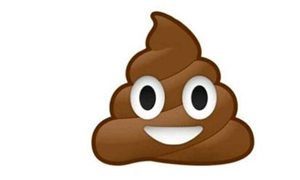
We are all carrying trillions of micro organisms with us, like bacteria. All together they are as heavy as our brain, namely 1.5kg! Most of the micro organisms are situated in our gut, where they play an important role in digestion and are crucial for a healthy immune system. Besides, bacteria also affect the brain indirectly. For example, mice that grow up in a sterile lab cage without any bacteria, show completely different behaviour compared to their siblings in a normal cage.
About half of our feces consists out of bacteria from our intestines. By collecting feces, we are able to find out what bacteria are carried and by whom. This may differ hugely between two people. We would like to couple these differences in gut bacteria to the brain activity that we measure during the MRI scans. Previous studies found relationships between the type of bacteria in the gut and brain activity. Unfortunately these studies only had a small group of partipants and had various results. As the relationship between gut bacteria and the brain is a relatively new topic in research, it is important that the results of a study are coherent and able to be repeated. Also, from the previous studies it is not clear what the combination of the type of bacteria and brain activity means.
With the Healthy Brain Study we aim to answer questions like: Do your gut bacteria predict how well you are able to cope with stress in daily life?
Dr. E. Aarts - Principal Investigator - Donders Institute for Brain, Cognition and Behaviour
